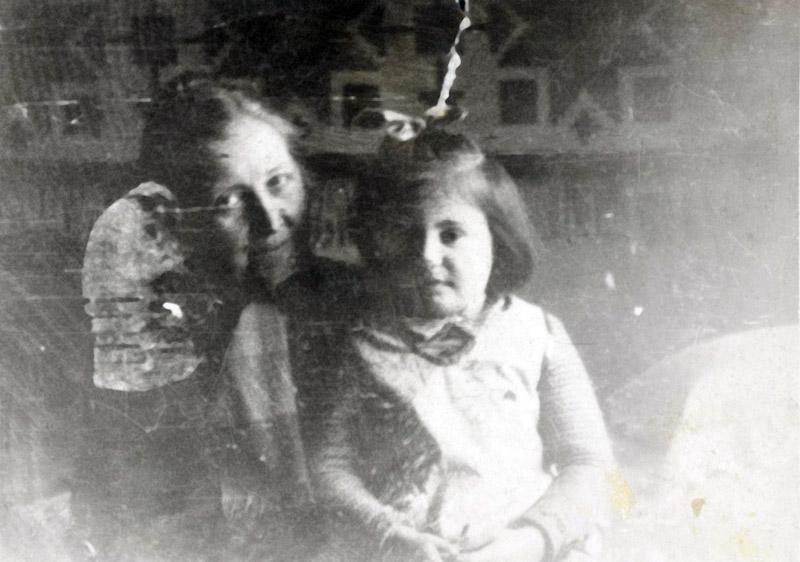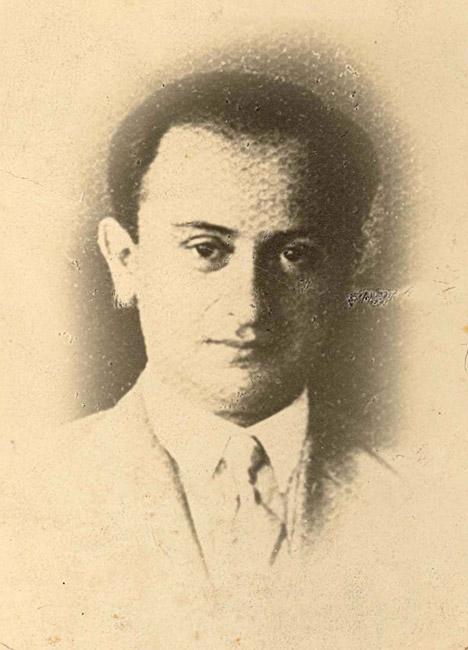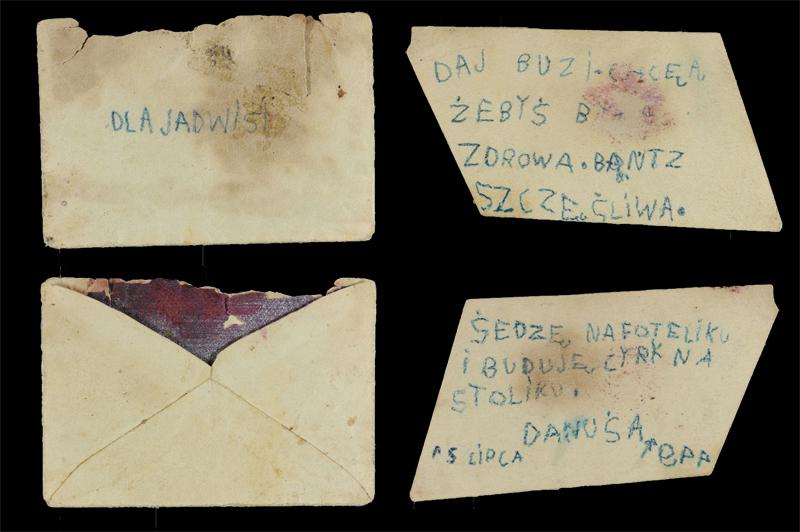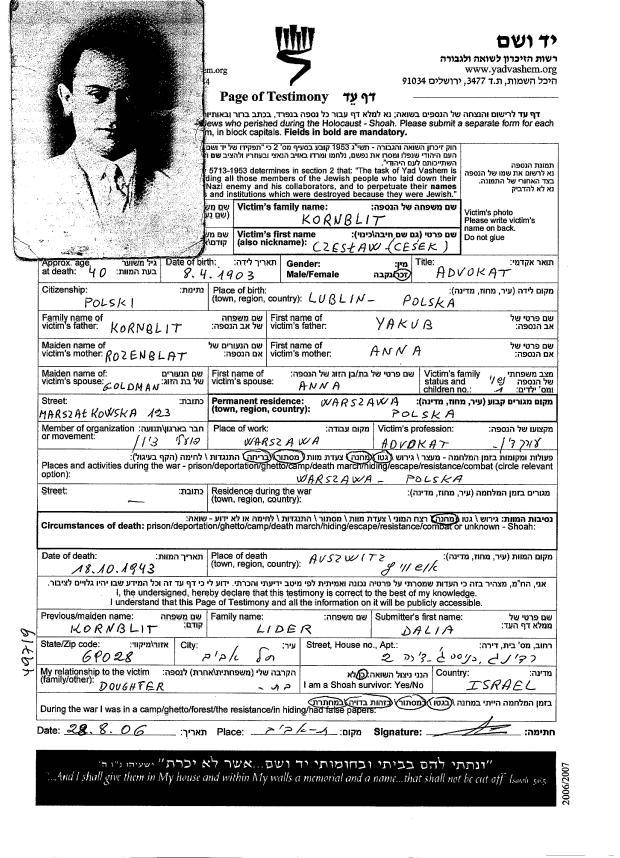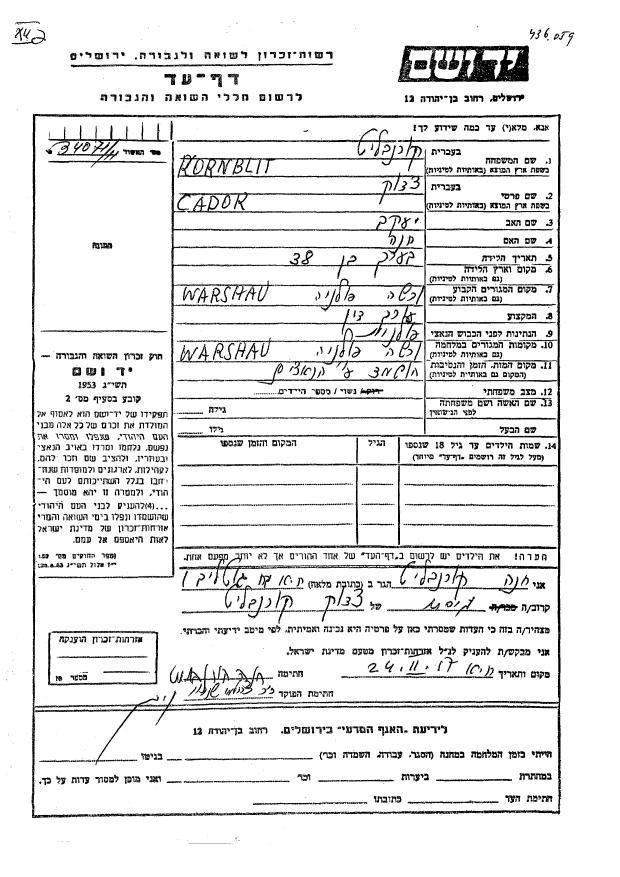Dalia Gabriela Kornblit was born in 1938 in Warsaw. She doesn’t remember her childhood in the ghetto. Her first and only memory of her father Czeslaw (Tzadok) is from their parting moment in September 1942. He put her into a straw sack and explained that she had to be completely silent whilst she was in the sack. Dalia never saw her father again; he was murdered in Auschwitz. She was hidden in Zosia Perkowska's apartment, in exchange for a large amount of money. Zosia was a single Christian woman living on the Aryan side of Warsaw. She insisted that Dalia’s parents were not to be told of her name or address, and that any correspondence between them must take place only through a third party. Dalia’s name was changed to Danuta (Danusia) Vitolin.
Danuta lived in hiding for two years. When Zosia went out to work Dalia spent long hours alone, locked in the apartment. When Zosia was home she taught her about Christianity. Danusia quickly forgot her previous life. She knew that she was living with a close relative and that she had a cousin called Jadwiga, from whom she occasionally received sweets and dolls via an intermediary. The intermediary gave the letter to her mother together with a photograph of her with Zosia, so that her mother would see that she was well. Her mother kept the letter and photograph on her person throughout the war; she said that they were the only things that she was prepared to die for.
Danusia knew that she was supposed to remain silent, but one day she could not resist temptation, and touched the keys of the piano in the drawing room. When Zosia learned what she had done, she was very angry and hit her. In the event, this “slip” saved her life. When the building began to burn during the shelling of Warsaw in October 1944, she was saved by a neighbor who only knew of her existence because he had heard her playing the piano in the locked apartment. She never saw Zosia again; it seems that she was killed in the air raid.
Following several months in a Displaced Persons camp, Danusia was taken to the home of a Christian family that intended to adopt her. A few months later an unknown woman arrived at the door. Ill and painfully thin, she identified herself as Danusia’s mother, come to reclaim her daughter. It was not easy for Danusia to agree to go with her mother. They travelled to Lublin, where they discovered that they were the only survivors of their family, and returned to Warsaw. Dalia’s first happy memory is of the time she spent in a resting home for child survivors with lung disease. She had been sent there by the Joint Distribution Committee; for the first time she was among other children, she was not hungry and she was treated well. In 1948, Dalia and her mother went to Sweden and from there to Argentina. At age twenty, Dalia immigrated to Israel where she had three children. The youngest of them is the singer Ivri Lider.
Dalia donated the note that she had sent her mother and the photo of herself with Zosia to Yad Vashem at a collection day in Tel Aviv.
